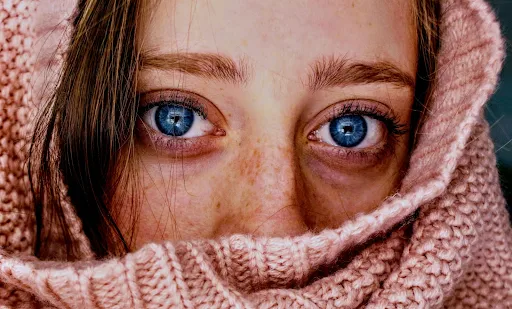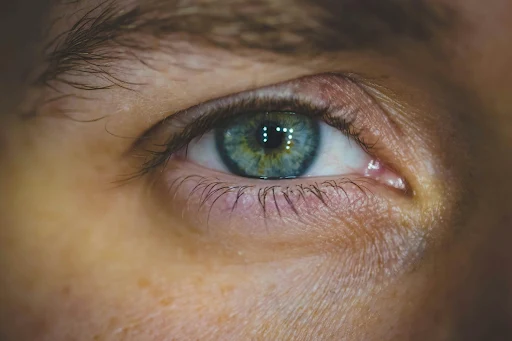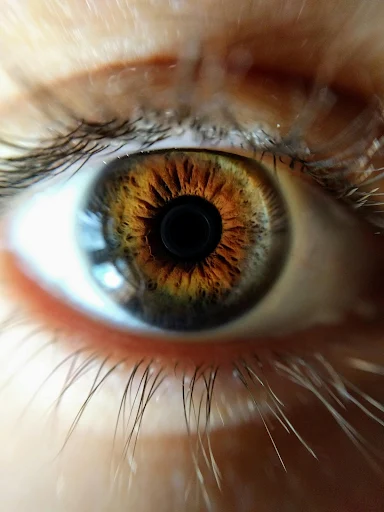Our eyes are one of the most vital organs in our body, allowing us to experience the world in vivid detail. Yet, many of us take eye health for granted until problems arise. From digital screen exposure to aging, our vision is constantly at risk of deterioration. In this guide, we’ll explore everything you need to know about maintaining good eye health, preventing common vision problems, and adopting habits that can preserve your eyesight for years to come.
Understanding Eye Health and Vision Care
Eye health refers to the overall well-being of your eyes, including vision quality, disease prevention, and proper eye function. Just like any other part of the body, our eyes require care, regular checkups, and a healthy lifestyle to function optimally.
Common eye problems include nearsightedness, farsightedness, astigmatism, cataracts, glaucoma, and age-related macular degeneration. While some of these issues are genetic, many can be prevented or managed with the right habits.
The Importance of Regular Eye Exams
One of the best ways to maintain eye health is by scheduling routine eye exams. Even if you have perfect vision, regular checkups can detect potential issues before they become serious. Eye exams help identify conditions such as:
Refractive Errors: Nearsightedness (myopia), farsightedness (hyperopia), and astigmatism require corrective lenses.
Glaucoma: Increased pressure in the eye can lead to blindness if left untreated.
Cataracts: A clouding of the eye’s lens that can impair vision.
Age-Related Macular Degeneration (AMD): Affects central vision and can lead to blindness.
Diabetic Retinopathy: High blood sugar levels can damage blood vessels in the retina, causing vision loss.
Adults should have a comprehensive eye exam every 1-2 years, while children and older adults may need more frequent checkups.
How to Protect Your Eyes from Digital Screen Exposure
With the rise of smartphones, tablets, and computers, digital eye strain (also known as computer vision syndrome) has become a common concern. Prolonged screen time can lead to dry eyes, headaches, blurred vision, and neck pain.
Tips to Reduce Digital Eye Strain:
Follow the 20-20-20 Rule: Every 20 minutes, look at something 20 feet away for 20 seconds to reduce strain.
Blink Often: Staring at screens reduces blinking, which can dry out your eyes.
Adjust Screen Settings: Increase text size, adjust brightness, and use blue light filters.
Use Proper Lighting: Avoid glare from screens by positioning light sources correctly.
Maintain the Right Distance: Keep screens at least 20 inches from your eyes.
Nutrition for Healthy Eyes
What you eat plays a crucial role in eye health. A diet rich in vitamins, antioxidants, and omega-3 fatty acids can help prevent eye diseases and improve vision.
Essential Nutrients for Eye Health:
Vitamin A: Found in carrots, sweet potatoes, and leafy greens, helps maintain good vision.
Vitamin C: Present in citrus fruits, it reduces the risk of cataracts.
Vitamin E: Found in nuts and seeds, protects against macular degeneration.
Zinc: Supports retinal health and is found in beans, nuts, and dairy.
Omega-3 Fatty Acids: Found in fish like salmon, they help prevent dry eye syndrome.
Incorporating these nutrients into your diet can keep your eyes healthy and reduce the risk of age-related vision problems.
The Role of Hydration in Eye Health
Dehydration can lead to dry, irritated eyes. The tear film, which keeps the eyes moist, depends on adequate hydration. Drinking at least 8 glasses of water per day can help maintain tear production and overall eye comfort.
If you suffer from dry eyes, consider using artificial tears or a humidifier to add moisture to the air.
Protecting Your Eyes from UV Damage
Ultraviolet (UV) rays from the sun can cause serious eye conditions like cataracts, macular degeneration, and even cancer.
How to Protect Your Eyes from UV Rays:
Wear Sunglasses: Choose sunglasses with 100% UVA and UVB protection.
Use a Hat: A wide-brimmed hat provides extra shade for your eyes.
Avoid Direct Sun Exposure: Try to stay in the shade during peak sun hours (10 AM - 4 PM).
Protecting your eyes from UV damage is essential for long-term eye health.
The Impact of Smoking on Eye Health
Smoking significantly increases the risk of developing eye diseases such as cataracts and macular degeneration. It also restricts blood flow to the eyes, leading to optic nerve damage.
Quitting smoking can dramatically reduce the risk of vision loss and improve overall health. If you need help quitting, talk to a healthcare professional for support.
Exercise and Eye Health
Regular physical activity improves blood circulation, which benefits the eyes by reducing pressure and increasing oxygen supply.
Best Exercises for Eye Health:
Cardio Workouts: Running, swimming, and cycling improve circulation.
Eye Yoga: Simple eye exercises like rolling your eyes or focusing on near and far objects can reduce strain.
Blinking Exercises: Helps refresh the eyes and reduce dryness.
Incorporating physical activity into your routine can prevent conditions like glaucoma and diabetic retinopathy.
Proper Eye Care for Contact Lens Wearers
If you wear contact lenses, proper hygiene is crucial to prevent infections.
Best Practices for Contact Lens Wearers:
Always wash your hands before handling lenses.
Use fresh lens solution daily.
Never sleep in contact lenses unless prescribed.
Replace lenses as recommended by your optometrist.
Following these steps can prevent eye infections and ensure clear vision.
Common Eye Problems and Their Symptoms
Knowing the early signs of eye problems can help you seek treatment before conditions worsen.
Common Eye Issues and Their Symptoms:
Blurred Vision: Could indicate refractive errors, cataracts, or diabetes-related issues.
Red Eyes: Often caused by infections, allergies, or excessive screen time.
Floaters and Flashes: Can be normal but may also indicate retinal detachment.
Night Vision Problems: Could be linked to vitamin A deficiency or cataracts.
Eye Pain or Pressure: Might be a sign of glaucoma or other serious conditions.
If you experience any of these symptoms, consult an eye doctor promptly.
Children’s Eye Health: What Parents Should Know
Children’s eye health is critical for their learning and development. Vision problems in kids can lead to difficulties in school and social interactions.
Tips for Maintaining Children's Eye Health:
Ensure kids have routine eye exams.
Limit screen time to prevent digital eye strain.
Encourage outdoor play for natural eye development.
Provide a balanced diet rich in eye-friendly nutrients.
Early detection of vision problems can prevent long-term issues.
Final Thoughts on Eye Health
Taking care of your eyes should be a priority at every stage of life. From regular eye exams to proper nutrition, small habits can make a big difference in preserving your vision. Whether you're reducing screen time, protecting your eyes from the sun, or staying hydrated, these steps will help keep your eyesight clear and healthy for years to come.
If you haven’t scheduled your next eye exam, now is the perfect time to do so. Your eyes work hard for you—give them the care they deserve!



Comments
Post a Comment